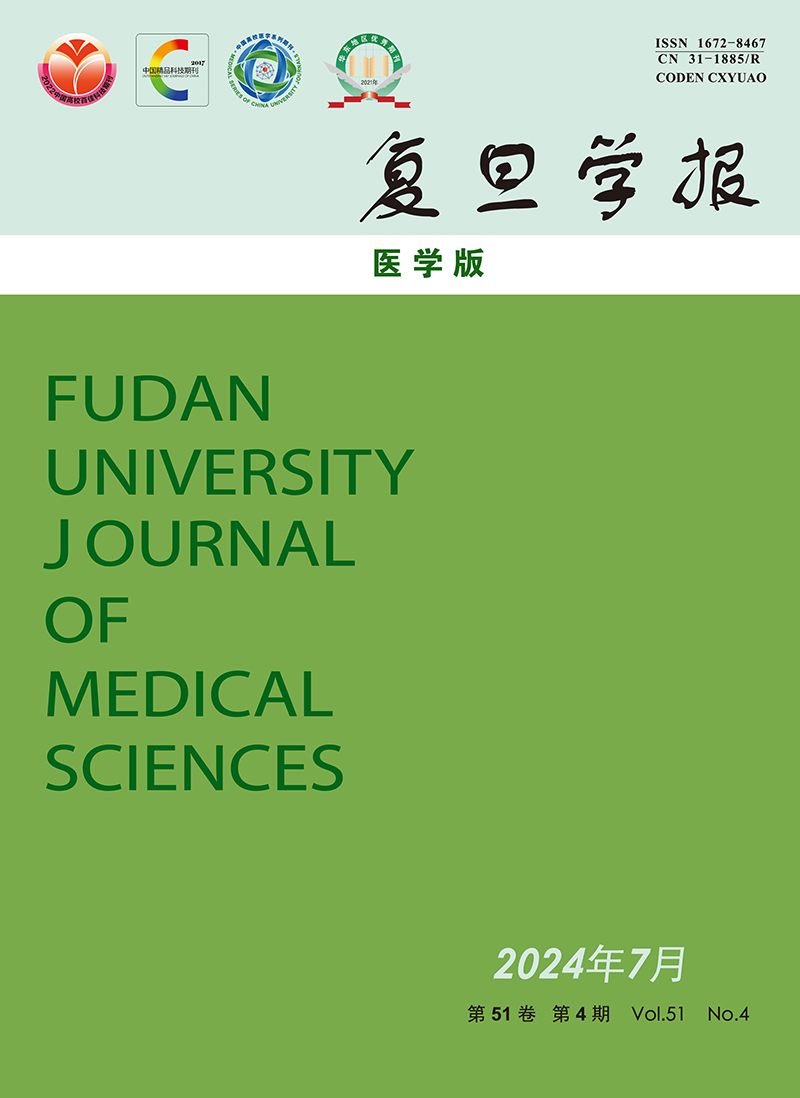{"title":"吸烟与新冠肺炎关系的认知及其对吸烟者日常吸烟量的影响","authors":"Yimeng Mao, P. Zheng, Bo Wang, C. Spears, Jidong Huang, M. Eriksen, P. Redmon","doi":"10.3969/J.ISSN.1672-8467.2020.06.005","DOIUrl":null,"url":null,"abstract":"Objective: To explore the cognition of coronavirus disease 2019 (COVID-19) epidemic and its relationship with smoking during the COVID-19 epidemic and provide reference for smoking cessation intervention Methods: A cross-sectional study was conducted among Chinese smokers aged≥18 by an online questionnaire Demographic information, tabacco addiction, daily cigarette consumption during the epidemic, smoking behavior, cognition of COVID-19 epidemic, and other information were collected through Wenjuanxin platform during Mar 19 to Apr 2, 2020 Chi-square tests and multinomial logistic regressions were used for statistical analysis Results: Among 1 388 participants with an average age of 43 91±11 95 years old(ranging 18-75), 95 7% of then were males In all, 1 014 (73 0%) of the participants had not changed their smoking consumption during the epidemic, while 107 (7 7%) smoked more and 267 (19 2%) smoked less Factors contributing to the reduction in smoking included disagreed with the statement that \"Smoking can prevent COVID-19\" (OR=1 56, 95%CI: 1 13-2 15), disagreed with the statement that \"Cigarette smoke is helpful in killing the virus of COVID-19\" (OR=1 63, 95%CI: 1 17-2 26), and agreed that \"Fine particles produced by smoking may increase the spread of virus\" (OR=1 84, 95%CI: 1 32-2 57) Conclusion: It is necessary to clarify the misunderstanding related to smoking and improve the health literacy of smokers through media We should strengthen smoking cessation intervention focusing on respiratory health and the cognition of COVID-19 epidemic in smoking cessation clinics, smoking cessation hotline and other smoking cessation services © 2020, Editorial Department of Fudan University Journal of Medical Sciences All right reserved","PeriodicalId":12635,"journal":{"name":"复旦学报(医学版)","volume":"47 1","pages":"830-836"},"PeriodicalIF":0.0000,"publicationDate":"2020-11-25","publicationTypes":"Journal Article","fieldsOfStudy":null,"isOpenAccess":false,"openAccessPdf":"","citationCount":"2","resultStr":"{\"title\":\"Cognition of the relationship between smoking and COVID-19 and its impact on daily cigarette consumption among smokers\",\"authors\":\"Yimeng Mao, P. Zheng, Bo Wang, C. Spears, Jidong Huang, M. Eriksen, P. Redmon\",\"doi\":\"10.3969/J.ISSN.1672-8467.2020.06.005\",\"DOIUrl\":null,\"url\":null,\"abstract\":\"Objective: To explore the cognition of coronavirus disease 2019 (COVID-19) epidemic and its relationship with smoking during the COVID-19 epidemic and provide reference for smoking cessation intervention Methods: A cross-sectional study was conducted among Chinese smokers aged≥18 by an online questionnaire Demographic information, tabacco addiction, daily cigarette consumption during the epidemic, smoking behavior, cognition of COVID-19 epidemic, and other information were collected through Wenjuanxin platform during Mar 19 to Apr 2, 2020 Chi-square tests and multinomial logistic regressions were used for statistical analysis Results: Among 1 388 participants with an average age of 43 91±11 95 years old(ranging 18-75), 95 7% of then were males In all, 1 014 (73 0%) of the participants had not changed their smoking consumption during the epidemic, while 107 (7 7%) smoked more and 267 (19 2%) smoked less Factors contributing to the reduction in smoking included disagreed with the statement that \\\"Smoking can prevent COVID-19\\\" (OR=1 56, 95%CI: 1 13-2 15), disagreed with the statement that \\\"Cigarette smoke is helpful in killing the virus of COVID-19\\\" (OR=1 63, 95%CI: 1 17-2 26), and agreed that \\\"Fine particles produced by smoking may increase the spread of virus\\\" (OR=1 84, 95%CI: 1 32-2 57) Conclusion: It is necessary to clarify the misunderstanding related to smoking and improve the health literacy of smokers through media We should strengthen smoking cessation intervention focusing on respiratory health and the cognition of COVID-19 epidemic in smoking cessation clinics, smoking cessation hotline and other smoking cessation services © 2020, Editorial Department of Fudan University Journal of Medical Sciences All right reserved\",\"PeriodicalId\":12635,\"journal\":{\"name\":\"复旦学报(医学版)\",\"volume\":\"47 1\",\"pages\":\"830-836\"},\"PeriodicalIF\":0.0000,\"publicationDate\":\"2020-11-25\",\"publicationTypes\":\"Journal Article\",\"fieldsOfStudy\":null,\"isOpenAccess\":false,\"openAccessPdf\":\"\",\"citationCount\":\"2\",\"resultStr\":null,\"platform\":\"Semanticscholar\",\"paperid\":null,\"PeriodicalName\":\"复旦学报(医学版)\",\"FirstCategoryId\":\"3\",\"ListUrlMain\":\"https://doi.org/10.3969/J.ISSN.1672-8467.2020.06.005\",\"RegionNum\":0,\"RegionCategory\":null,\"ArticlePicture\":[],\"TitleCN\":null,\"AbstractTextCN\":null,\"PMCID\":null,\"EPubDate\":\"\",\"PubModel\":\"\",\"JCR\":\"Q4\",\"JCRName\":\"Medicine\",\"Score\":null,\"Total\":0}","platform":"Semanticscholar","paperid":null,"PeriodicalName":"复旦学报(医学版)","FirstCategoryId":"3","ListUrlMain":"https://doi.org/10.3969/J.ISSN.1672-8467.2020.06.005","RegionNum":0,"RegionCategory":null,"ArticlePicture":[],"TitleCN":null,"AbstractTextCN":null,"PMCID":null,"EPubDate":"","PubModel":"","JCR":"Q4","JCRName":"Medicine","Score":null,"Total":0}
引用次数: 2
Cognition of the relationship between smoking and COVID-19 and its impact on daily cigarette consumption among smokers
Objective: To explore the cognition of coronavirus disease 2019 (COVID-19) epidemic and its relationship with smoking during the COVID-19 epidemic and provide reference for smoking cessation intervention Methods: A cross-sectional study was conducted among Chinese smokers aged≥18 by an online questionnaire Demographic information, tabacco addiction, daily cigarette consumption during the epidemic, smoking behavior, cognition of COVID-19 epidemic, and other information were collected through Wenjuanxin platform during Mar 19 to Apr 2, 2020 Chi-square tests and multinomial logistic regressions were used for statistical analysis Results: Among 1 388 participants with an average age of 43 91±11 95 years old(ranging 18-75), 95 7% of then were males In all, 1 014 (73 0%) of the participants had not changed their smoking consumption during the epidemic, while 107 (7 7%) smoked more and 267 (19 2%) smoked less Factors contributing to the reduction in smoking included disagreed with the statement that "Smoking can prevent COVID-19" (OR=1 56, 95%CI: 1 13-2 15), disagreed with the statement that "Cigarette smoke is helpful in killing the virus of COVID-19" (OR=1 63, 95%CI: 1 17-2 26), and agreed that "Fine particles produced by smoking may increase the spread of virus" (OR=1 84, 95%CI: 1 32-2 57) Conclusion: It is necessary to clarify the misunderstanding related to smoking and improve the health literacy of smokers through media We should strengthen smoking cessation intervention focusing on respiratory health and the cognition of COVID-19 epidemic in smoking cessation clinics, smoking cessation hotline and other smoking cessation services © 2020, Editorial Department of Fudan University Journal of Medical Sciences All right reserved


